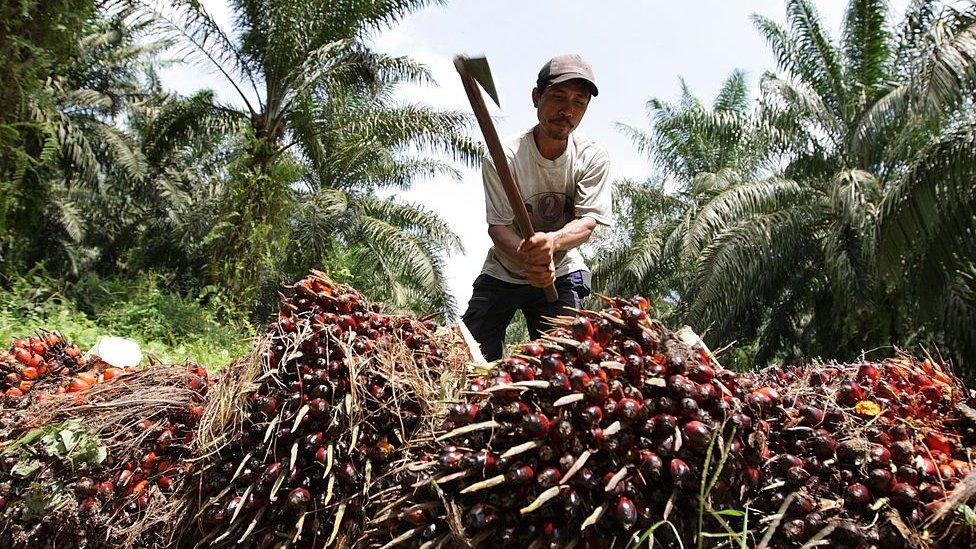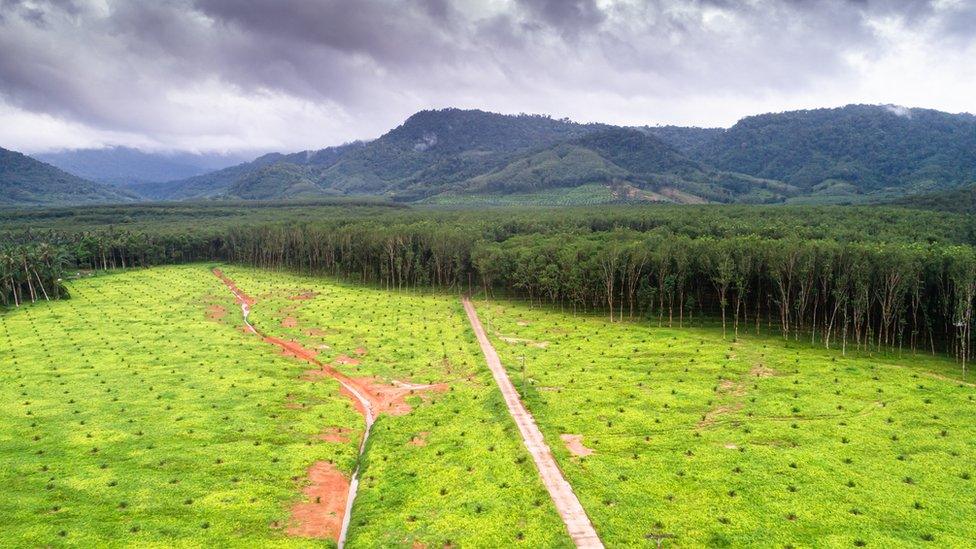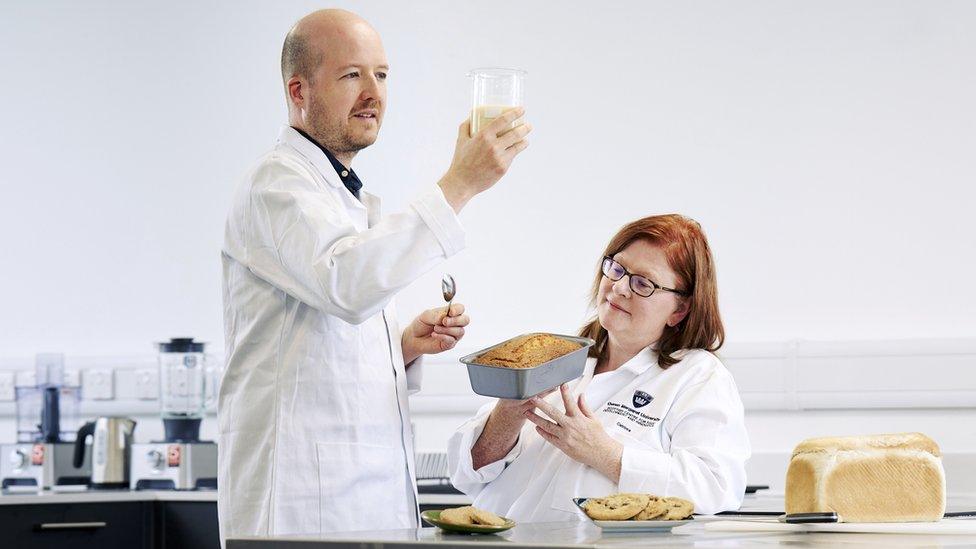What is palm oil? Scottish team of scientists discover alternative
- Published
- comments

Palm oil production is responsible for desforestation all around the world
You may not have given palm oil much thought - but experts think it's in around 50% of all beauty and food products in supermarkets.
This is because it's really cheap to produce - but palm oil production is causing big problems for the environment.
Huge areas of rainforest near the equator, where it's very hot, have been cut down to for palm plantations - affecting wildlife, the people who live there and the wider environment.
However, scientists in Edinburgh think they have found a possible solution - by creating a very similar palm oil alternative.

Huge areas of rainforest have been lost to palm oil production
Palm oil comes from the fruit of the African oil palm. It's in loads of products we use - from toiletries like shampoos and soap, to cereals and biscuits.
It's cheap to make and there are lots of other reasons it's used in food and other products instead of other oils.
Palm oil has no flavour or colour, so it can be added into a product without changing how it looks or tastes.
It works as a natural preservative - which means it makes things last for longer.
But the way some palm oil is made is causing serious damage to the environment.
What is palm oil doing to the environment?
Palm oil: How orangutans are being threatened
Palm oil production is said to have been responsible for about 8% of the world's deforestation between 1990 and 2008.
About 85% of palm oil land is in Indonesia and Malaysia - the amount of land used for it has increased from 3.3 million hectares to 28.7 million hectares in the past 50 years.
Forests are often burned to clear areas for oil palms to be grown - which leads to the destruction of animals' habitats.
However, because the oil is so efficient for making things, people have been looking for a solution that's cheap to make.
This is where the scientists in Scotland come in - they've made a product they say is 70% better for the environment.
What's the new solution to palm oil?

Catriona Liddle and Dr Julien Lonchamp led the research team at Queen Margaret University in Edinburgh
Scientists at Queen Margaret's University (QMU) in Edinburgh have named their product PALM-ALT.
The new oil is completely palm and coconut free, and instead is made from a mixture of rapeseed oil and a by-product of things made with linseed.
A by-product is something that is produced while you are make something else.
The scientists say this new oil is healthier than palm oil to eat and are currently working with manufacturers to try to get the product made on a large scale.
Catriona Liddle leads the developers on the QMU team and said: "It's the holy grail to replace it and still have exactly the same end result in product - to taste the same and have the texture the same - and we've done that.
"We've put it through some special sensory testing to see if a panel can tell the difference between our product and traditional palm... and they can't."
"We've created a product that is over 80% less saturated fat and 30% less calories, so it's a significantly healthier product than palm oil itself.
"It's also about 70% better for the environment in terms of carbon emissions."
